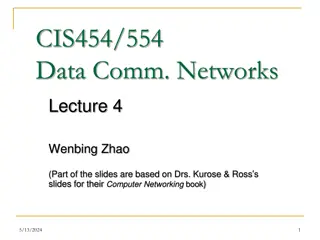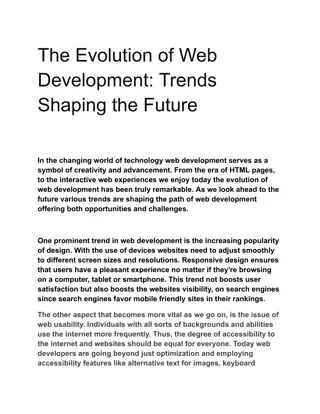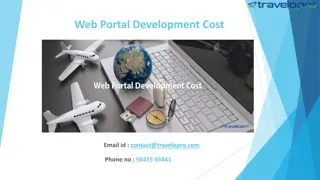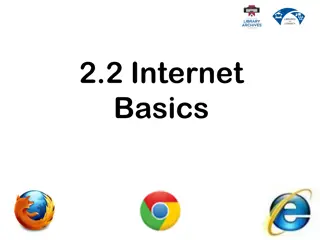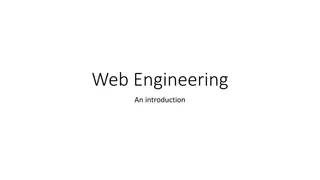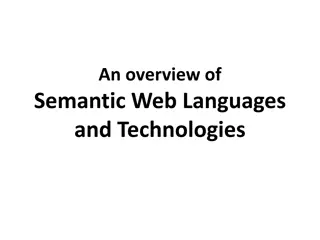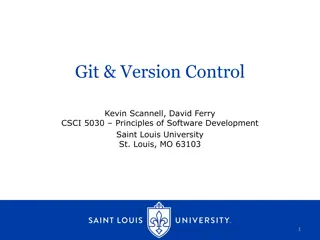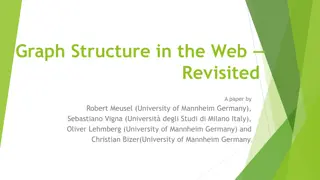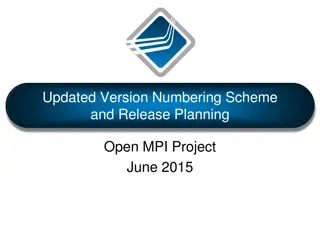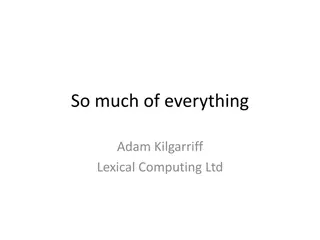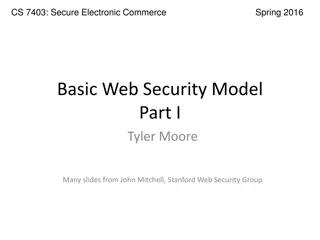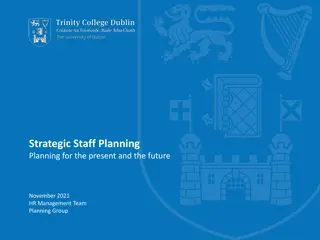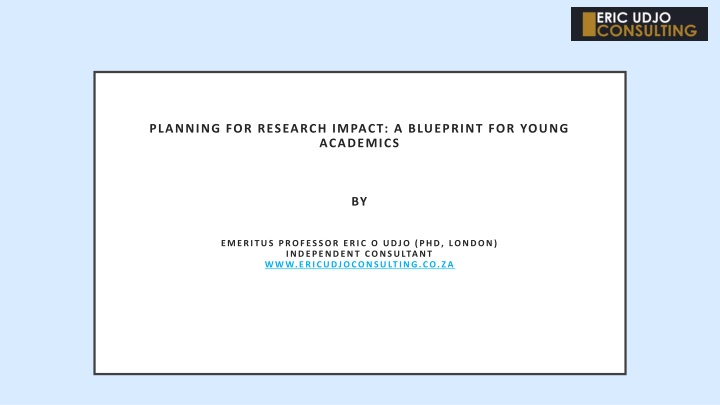
Blueprint for Research Impact: Strategies for Young Academics
Discover insightful strategies for young academics to enhance their research impact by focusing on niche areas, avoiding replicative studies, and steering clear of overflogged research topics. This blueprint emphasizes the importance of originality and problem-solving in academic research.
Download Presentation

Please find below an Image/Link to download the presentation.
The content on the website is provided AS IS for your information and personal use only. It may not be sold, licensed, or shared on other websites without obtaining consent from the author. If you encounter any issues during the download, it is possible that the publisher has removed the file from their server.
You are allowed to download the files provided on this website for personal or commercial use, subject to the condition that they are used lawfully. All files are the property of their respective owners.
The content on the website is provided AS IS for your information and personal use only. It may not be sold, licensed, or shared on other websites without obtaining consent from the author.
E N D
Presentation Transcript
PLANNING FOR RESEARCH IMPACT: A BLUEPRINT FOR YOUNG ACADEMICS BY EMERITUS PROFESSOR ERIC O UDJO (PHD, LONDON) INDEPENDENT CONSULTANT WWW.ERICUDJOCONSULTING.CO.ZA
PREAMBLE This presentation provides a blue print for young academics to achieve research impact. A core mandate in academia is research. Research should make impact.
WHAT IS RESEARCH IMPACT? According to Charles Sturt University, research impact is the demonstrable contribution that research makes to the economy, society, culture, national security, public policy services, health, the environment, or quality of life beyond contributions to academia . The following suggestions may be useful in planning impact. research to achieve
IDENTIFY A NICHE AREA FOR OWN RESEARCH As a guiding principle, avoid being Jack of all trades and master of none. That means, avoid being a generalist. Strive to be a specialist. researchers go where ever the wind blows. It is unlikely that a generalist would make much impact in his/her research . Some Identify a niche area within your discipline for research and remain focused on this niche area. With time, you will eventually be recognised locally and intentionally as an authority in that area or research.
REPLICATIVE VS ORIGINAL/PROBLEM SOLVING RESEARCH Avoid replicative research i.e. replicating what other researchers have done. Nothing wrong in replicative research but replicative research produces little impact. Scientific journals are usually more interested in original/problem solving research i.e. research that produces new knowledge. I have often read in research paper statements such as: my results are consistent with the findings of xxxxx studies. The question one may ask: so what new knowledge has such a study produced?
AVOID OVERFLOGGED AREA OR BUZZ RESEARCH Certain issues are over flogged by research. Avoid such areas as it is difficult to bring new insights into over flogged areas of research. The results of certain studies are predictable simply because the research issue is over flogged. Regarding what I call buzz research, it appears to me developing a framework as one of the objectives in research falls into this category. I have read in several studies from different disciplines stating such objective. Nothing wrong in developing a framework as an objective in one s research.
AVOID OVERFLOGGED AREA OR BUZZ RESEARCH (CONTD) Usually, a framework is conceptual for examining a phenomenon. In the course of the study therefore, the framework is tested. How does one test or evaluate a framework that was produced as the last objective in a study? Untested frameworks cannot be proven to add to new knowledge. One may ask: was the researcher relying on other researchers to do the evaluation? If so, who takes credit for the framework, the developer or the evaluator of the framework?
AVOID OVERFLOGGED AREA OR BUZZ RESEARCH (CONTD) Some buzz words for research come from the western world and scholars in the developing world jump into the bandwagon perpetuating some of these buzz words for research. some One is unlikely to make impact in research if one becomes a tool in driving some western research agenda. Follow your own research agenda dictated by your niche area of research. Have confidence in challenging the status quo in your research.
RECOGNISE RESEARCH IS A PROCESS Do not take short cuts in your research. Trying to take short cuts would result in sloppy research. Recognise that research is a process.
RECOGNISE RESEARCH IS A PROCESS (CONTD) My advise: Do not rush your research, work on it continuously and diligently. If you have an idea for research, (a) Discuss the idea with colleagues. consideration and begin preliminary work on the idea, then produce a draft paper. Take their comments into (b) Present the draft paper in department seminar and in a conference. (c) Use the comments from the seminar, conference to revise the paper. (d) Send to a journal for review for publication (e) Revise and re-submit using the reviewers comments. It is rare for a manuscript to be accepted for publication without revision submission. on first (f) Do not be discouraged if your paper gets rejected. I doubt there is any researcher whose paper has not been rejected at some his/her career. time in (g) Revise the paper using the reviewers comments and send to another journal.
ALWAYS EXERCISE RIGOUR IN YOUR RESEARCH Exercise rigour in your research. Rigour in research encompasses a number of things including: 1. The paper should be well structured. 2. The title should be consistent with the objectives, data & analysis. 3. The research problem statement should be well articulated. 4. The literature review should reveal gaps in previous studies on the issue. This contextualises the new knowledge the research will generate 5. The research objectives should be stated unambiguously, specific, and measurable as well as linkable to the study methods.
ALWAYS HAVE RIGOUR IN YOUR RESEARCH (CONTD) 6. Full details of the data and methods utilised should be provided. 7. The results should be aligned with the research objectives. Interpretation of the results should be conveyed in a meaningful and non-technical manner even in a highly technical research. 8. Maintain academic integrity. Avoid plagiarism.
WHERE TO PUBLISH TO HAVE IMPACT Avoid predatory journals. Target high impact journals (impact factor >= 1.0) Quantify vs Quality. Avoid re-cycling of previous publications. At some stage, quantity matters, to enable one move up the academic ladder but ultimately it is the quality of the paper that matters in producing impact.
ASSESSING RESEARCH IMPACT Research impact is difficult to assess fully but there are some pointers. See for example Davis et al (2005). Pertinent considerations in assessing research impact include: 1. Who are the users of your research findings? (community, academia citations, impact factor of journals where research is published, several indexes available for assessing individual research impact: google schorlar, H-I index etc). 2. Have your research findings resulted in any change in any sphere of society/your discipline? (e.g. policy changes, interventions to achieve a set of goals). 3. Has the community benefited in any way from your research findings? 4. How many patent awards have resulted from your research?
SUMMARY In summary: Have passion for research. Identify and focus on own niche area in research. Avoid replicative research and focus on original/problem solving research. Avoid over flogged areas of research. Don t be driven by western research agenda. Do not take short cuts in your research. Recognise research is a process and takes a lot of time. Exercise rigour in your research. Avoid publishing in predatory journals and focus on high impact journals.
REFERENCES Charles Sturt University (2021).Research impact - Research (csu.edu.au) Davis, H., Nutley, S., Walter, I., 2005. Approaches to assessing the non- academic impact of social science research. Report of the ESRC Symposium on Assessing the Non-academic impact of Research, 12/13 May.

